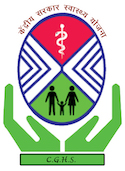Hepatitis is simple inflammation of the liver. The most common cause of such inflammation is a strain of viruses. The name of these viruses is in series of A,B, C,D, and so on. But there are certainly other causes that also can cause hepatitis. And among other causes, certain medicines, alcohol, and toxins play an important role. And one more strain is there and that is autoimmune hepatitis. In the case of autoimmune hepatitis, the immune system starts destroying the liver cells. We at Sukhayu offer treatment for particular strains and types of Hepatitis. And more particularly the treatment of autoimmune hepatitis along with non-infectious hepatitis is done at our facilities.
Hepatitis is an inflammatory condition of the liver that is commonly due to infection. However, hepatitis may occur secondary to side effects of drugs, medications, alcohol, and toxins. Besides, there is autoimmune hepatitis that develops when the body starts making antibodies against the liver tissue.
Facts on Hepatitis
- Hepatitis means- inflammation in the liver.
- Ayurveda describes this condition
- Hepatitis can be self-limiting or may progress to scarring or fibrosis, cirrhosis, or even liver cancer.
- After the acute phase, the patient’s outcome depends on many factors, including the type of infection.
- Hepatitis viruses are the common cause of hepatitis in the world.
- In some cases, after the symptoms of the acute phase of hepatitis subsides. The patient is not even aware of the fact that the disease is progressing to chronic and liver failure occurs.
- Viral hepatitis, especially hepatitis A and hepatitis B, are of great concern because of potential outbreak and epidemic spread.
- Acute hepatitis infection may occur with no or Limited symptoms or may include symptoms of jaundice such as yellowing of eyes and skin, extreme fatigue, dark urine abdominal pain, nausea, and vomiting.
- Chronic hepatitis is the inflammation of the liver that at least lasts for six months.
- Symptoms of chronic hepatitis develop slowly. Signs and symptoms are too subtle to notice.
- Autoimmune hepatitis is more common in females than in males.
Symptoms of Hepatitis
People with hepatitis may experience no or very mild symptoms.
Mostly the symptoms of hepatitis appear 15 to 180 days after infection.
The initial phase of hepatitis is termed the acute phase.
The Common Symptoms of Acute Hepatitis Include:
- Fatigue
- Flu-like symptoms
- Loss of appetite
- Dark urine
- Pale stool
- Abdominal pain
- Nausea and vomiting.
- Unexplained weight loss
- Yellow skin and eyes
The acute phase of hepatitis is not dangerous. However, in some cases, it leads to acute liver failure and even death. In some cases, most likely with hepatitis B and hepatitis C infection becomes chronic.
Common Symptoms of Chronic Hepatitis Includes:
- Dark urine
- Hives
- Itchy skin
- Light-coloured faeces
- Yellow skin, whites of the eyes, and tongue
Causes of Hepatitis
Hepatitis is a condition that is caused by different pathologies. On a broader level, we can classify Hepatitis in three different categories-
- Non-Infectious Hepatitis
- Autoimmune Hepatitis
- Viral Hepatitis
As the name suggests- these three types of hepatitis are based on the cause of the problem alone. Therefore these are considered as types of hepatitis also.
Non Infectious Hepatitis
Except for the infection due to the virus, there are certain causes that also cause hepatitis. These causes are counted as non-infectious hepatitis.
- Alcohol – Excessive alcohol consumption leads to liver damage and inflammation. This condition is many times, referred to as alcoholic hepatitis. Alcohol, after being absorbed in the digestive tract, is processed in the liver. As alcohol is processed, substances that can damage the liver are produced. The alcohol-related liver disease typically occurs in people who drink heavily for many months or years.
- Drugs and other toxins – Other toxins that cause hepatitis include exposure overdose or overuse of medications. Certain drugs, if taken for an extended period, can cause chronic hepatitis, particularly. Such drugs include isoniazid, methyldopa, and nitrofurantoin.
- Nonalcoholic steatohepatitis – Non-alcoholic steatohepatitis occurs in people with diabetes, excess body weight, and abnormal levels of cholesterol and other fats (lipids) in the blood. All of these conditions cause the body to synthesize more fat or process and excrete fat slowly. As a result, fat is accumulated and is then stored inside liver cells. This condition is termed as fatty liver. Fatty liver can lead to chronic inflammation and Liver cirrhosis.
Less often, chronic hepatitis results from:
- Alpha-1 antitrypsin deficiency A Celiac disease
- Hemochromatosis
- Primary biliary cholangitis
- A thyroid disorder
- Wilson disease
Autoimmune Hepatitis
In some patients, the immune system of the body mistakes the liver cells as harmful and begins the attack. This kind of development takes place in some of the genetic conditions. The presence of HLA genes is the main reason behind this condition.
The body starts making ANA- antinuclear antibodies and these antibodies start killing the hepatocytes (normal healthy liver cells). Due to the destruction of the cells this condition of autoimmune hepatitis.
Ongoing inflammation ranges from mild to severe and then hampers liver function.
Viral Hepatitis
There are viral strains, which cause this condition of hepatitis. According to strains of the Viral, infectious hepatitis are of five types. Different viruses are responsible for the different types of viral hepatitis.
Hepatitis A
Hepatitis A virus is a causative factor for this strain of Hepatitis. It transmits by consuming water and food contaminated by feces from an infected person. Hepatitis A is always a short-term and acute disease. In most cases, the infection is mild, and most of the patients make a full recovery. This type of hepatitis usually resolves in 2 months without leaving any long-term health problems. Besides, a person once infected with hepatitis A develops immunity to it for the rest of their life.
Hepatitis B
Hepatitis B transmits with contact with the infectious body fluids, for example, semen or vaginal secretion that contains the hepatitis B virus (HBV). It transmits while having sex with an infected partner, injection drug use, or sharing shaving razors with an infected person. It may also transmit from mothers to infants during childbirth. Most of the adults suffering from hepatitis B recover in 90 days and develop lifelong immunity to it.
Hepatitis C
Hepatitis A virus (HAV) is a causative factor for this strain of Hepatitis. The Hepatitis C infection transmits through direct contact with infected body fluids through sexual contact or injection drug use. However, Hepatitis C mostly happens through the transfusion of contaminated blood products and blood. In about 15 to 25 percent of hepatitis C patients, the infection resolves without any treatment. about 1-2 percent of hepatitis C patients, the disease proves to be fatal. In the rest, 70 to 85 percent, hepatitis C becomes a lifelong infection.
Hepatitis D
Hepatitis D is also known as Delta hepatitis. It is a serious liver disease caused by the hepatitis D virus (HDV). This contracts through direct contact with infected blood. It is a rare form of hepatitis and occurs in the conjugation of hepatitis B infection. Because the hepatitis D virus cannot multiply without the presence of hepatitis B infection.
Hepatitis E
Hepatitis is a waterborne disease. The Hepatitis E virus causes this condition. It happens in areas with poor sanitation due to consuming water contaminated with fecal matter.
How hepatitis occurs
According to the subtypes of hepatitis- the process of the disease varies. But the main thing which happens in the case of hepatitis is- the destruction of the hepatic cells. This destruction of the cells leads to inflammation in the liver.
Non Infectious Hepatitis
Alcohol and medicines are the basic reason behind this condition. This condition happens because of the overuse of the liver.
In case of the Alcohol- alcohol metabolism take place in the liver. While ethanol metabolism, the immune system activates. And this process starts killing the hepatocytes. Alcoholic liver disease is the other noun used for this condition.
The same happens with certain medicines. The process of metabolism takes place in the liver for most of the medicines. The liver is also responsible for the excretion of these medicines from the body. Therefore after using these medicines regularly, they start accumulating in the liver. Because of these reasons, these medicines start killing the cells of the liver.
How does Ayurveda treat Ulcerative Colitis
Autoimmune Hepatitis
The disturbed immune system when starts killing the cells of the liver, which leads to the condition of the AIH. The genes carry the code for the behavior of the immune system. When this code corrupts, the problem aggravates. So the main thing is the behavior of the immune system.
Viral Hepatitis/Infective Hepatitis
Viruses are simple RNA, the proteins which carry some genetic coding. When these proteins come in contact with the human body, these activate. On activation, these just misdirect the normal working of the immune system and therefore leads to the destruction of the cells.
The process of destruction of cells remain to continue, until the body doesn’t develop antibodies against these viruses.
Ayurveda About Hepatitis
हारिद्रनेत्रः स भृशं हारिद्रत्वङ्नखाननः| रक्तपीतशकृन्मूत्रो भेकवर्णो हतेन्द्रियः||३५||
दाहाविपाकदौर्बल्यसदनारुचिकर्षितः|
- Yellow discoloration of – eyes, nails, skin and face.
- Reddish-yellow – stool and urine.
- Frog like skin appearance.
- Lack of sensory capabilities.
- Burning sensation
- Indigestion
- Weakness
- Loss of appetite
These are the detailed symptoms of the condition of Kamla, in Ayurveda. The symptoms are self-explanatory and the origin of this disease is in the liver as per Ayurveda. Hence this condition explains the condition of hepatitis, itself.
The above-discussed symptoms are related to the acute conditions, and in the chronic stages are also well described.
कृष्णपीतशकृन्मूत्रो [१] भृशं शूनश्च मानवः||३७||
सरक्ताक्षिमुखच्छर्दिविण्मूत्रो यश्च ताम्यति| दाहारुचितृषानाहतन्द्रामोहसमन्वितः||३८||
नष्टाग्निसञ्ज्ञः
This verse reads-
- Black and Yellow – urine and stool
- Excessive edema
- Red coloration on face and eyes.
- Excessive vomiting
- Blood with urine and stool
- Burning sensation, anorexia, excessive thirst, constipation
- Loss of consciousness, drowsiness and fainting.
So, this is clear, Ayurveda is well aware of this condition of hepatitis. The basic thing in this context is to understand the involvement of the doshas.
Because as per Ayurveda until-unless we don’t have an understanding about the doshas- we cannot go for the treatment.
Pitta Dosha Aggravation in Hepatitis
The main dosha is pitta in this condition. These are not alone the symptoms of the disease, but also the location of the disease indicates the aggravation of the Pitta dosha. Yakut is the location. And Ranjana pitta is the subtype that is disturbed predominantly.
So we need to work on the Pitta dosha for the treatment of hepatitis, but when we treat the Pitta, we need to maintain the balance of the other Doshas too. Less pitta and excessive Vata turns pitta in an aggravated state. The same thing happens with lower levels of the Kapha too.
So the balance is most important with all three doshas.
Ayurveda Treatment of Hepatitis
The main treatment of Ayurveda in Hepatitis is twofold. One is to revive the cells of the liver and the second is to balance all the three doshas- with complete care of the Pitta.
Revival of the Liver
The removal of the bile is necessary to revive the liver. The liver is a canalicular structure, where millions of canals are interconnected. And cells are lined up on the walls of these canals and channels. These cells do the analysis of everything and the same canals on the other side drain the bile. When this bile flows normally, things remain good.
But the backpressure of the bile destroys the “spongy” tissue. Therefore in Ayurveda, the word – “Pitta-Rechana” is used and the same is advised for the treatment of Hepatitis.
This “rechan” is done through Virechana. And in severe cases, Nitya-Virechana is done. Nitya Virechana means- to remove the excess of the Pitta and it is done every day.
Balance of the Doshas
When we remove the excess of bile, this is important to balance the Pitta. So besides the involvement of the Panchakarma on a milder or moderate levels, medicines are important for the Ayurveda treatment of Hepatitis.
Because these medicines are important to continue for a longer time. The damage is quick and revival is a long process.
At Sukhayu Ayurved, without checking the patient, no medicines can be suggested. Because for the treatment it is important to balance the doshas. For a consultation, you need to make an appointment before meeting Vaidya Ji.
For the treatment of hepatitis, even autoimmune hepatitis- you can consult our Vaidyas through online consultation.
You book online consultation, our team will share the details about the consultation and required reports.
After that your video consultation will take place and you will be told about the treatment modalities.













